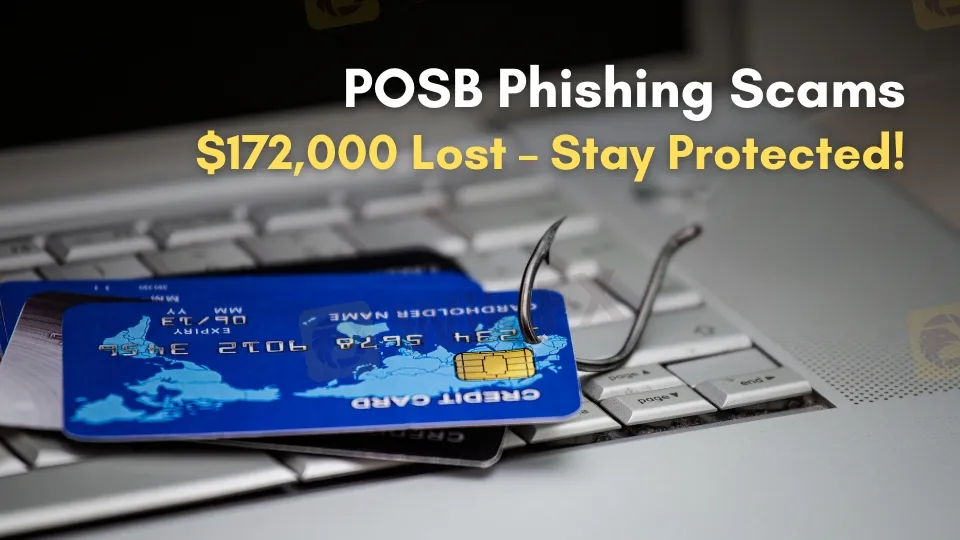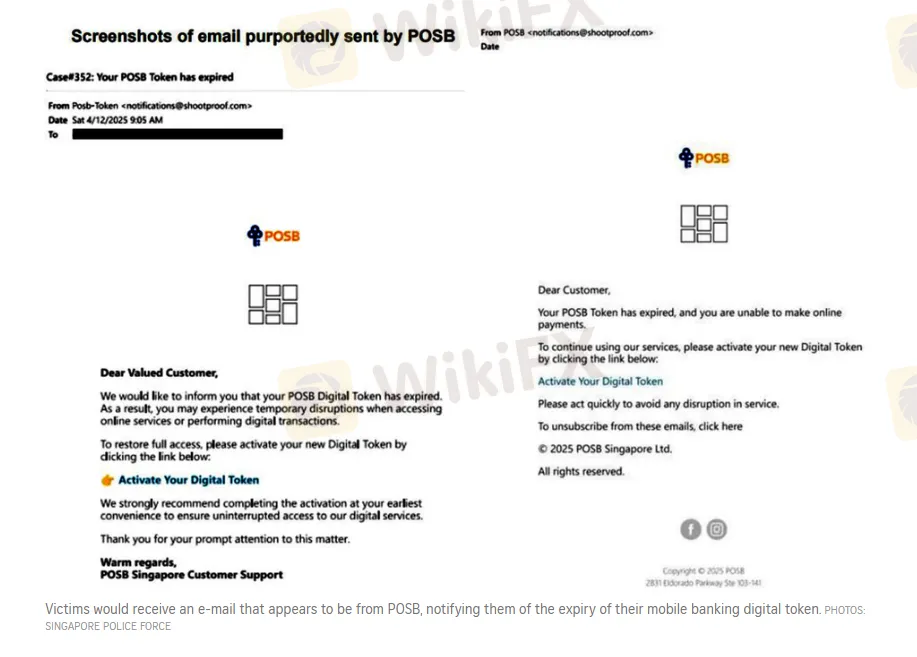Beware of POSB Phishing Scams: $172,000 Lost! Protect Yourself Now
Abstract:Over $172,000 lost in POSB phishing scams since April. Learn how to protect yourself from banking fraud with these crucial safety tips.

Since April, phishing scams targeting POSB customers have led to at least $172,000 in losses. The police have received 13 reports related to these scams, where cybercriminals impersonate the bank to steal personal information.
Victims receive an email that appears to be from POSB, claiming that their mobile banking digital token is about to expire. The email urges them to activate or update their token by clicking on a link provided in the message.
However, this link directs them to a fraudulent website designed to steal sensitive information. Once victims enter their banking credentials, card numbers, and one-time passwords, their accounts are compromised. Unauthorized transactions, often in foreign currencies, typically alert them to the scam.

On May 6, police issued a public warning, advising people to avoid clicking on links in suspicious emails, SMS messages, or communications from platforms like iMessage or Androids rich communication services, which claim to be from banks.
To prevent such attacks, customers are encouraged to set transaction limits on their internet banking and utilize features like Money Lock. Money Lock allows users to digitally secure their savings in an account from which no funds can be withdrawn, adding an extra layer of protection.
Singapore experienced a record $1.1 billion in scam losses in 2024, highlighting the growing threat of phishing fraud. Victims are urged to stay cautious and avoid interacting with unsolicited messages or clicking on unknown links.

Read more

Exposing the Dark Art of Pig Butchering Scams
A new type of scam is spreading fast through the world of online trading and cryptocurrency. It’s called the "pig butchering" scam. The term “pig butchering” comes from a Chinese phrase, “Sha Zhu Pan”, which describes the way a scammer treats their victim like a pig by slowly “fattening” them up with kindness and attention before “butchering” them for money.

Clicking on a Facebook Ad Cost Him His Life Savings of RM186,800
A 70-year-old retiree from Muar, Malaysia, lost RM186,800 of his savings after falling for an online investment scam that was advertised on Facebook.

Why Digital Assets Are Surging Today?
Explore the driving forces behind the 2025 surge in digital assets, from institutional investments to regulatory clarity and technological advances, shaping the market’s future.

What are the common signs of a forex scam broker?
The forex market, with its daily trading volume exceeding $7.5 trillion, offers vast opportunities for traders. However, this immense market also attracts fraudulent brokers aiming to exploit unsuspecting investors. Recognizing the signs of a scam broker is crucial to safeguarding your capital and ensuring a secure trading experience.
WikiFX Broker
Latest News
XM Marks 15 Years in Trading with New Product Launches and Events
Warren Buffett’s 5 Golden Rules that Every Trader Must Know
Mastering Trading Psychology: Four Pillars of Mental Strength for Market Participants
Futu Securities Launches Crypto Deposit Service for Investors
EUR/USD at a Critical Juncture: Can the 1.13 Level Hold?
Meta Cracks Down on Scam Networks Targeting Brazil and India
Clicking on a Facebook Ad Cost Him His Life Savings of RM186,800
Are You Trading or Are You Gambling?
Essential Features to Look for in a Trading Platform
Why Digital Assets Are Surging Today?
Rate Calc
